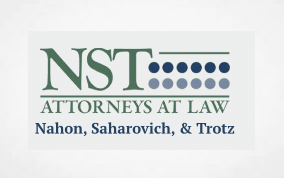As the industry for cannabis that is legal under state and/or federal law continues to expand, a flurry of court cases in recent years have addressed whether these businesses can utilize the federal courts to vindicate their legal claims.
As discussed below, in some contexts, federal courts have dismissed plaintiffs’ claims under the old common law “illegality doctrine,” which holds that litigants engaged in unlawful practices may not access the court system to enforce their rights to proceeds of illegal acts. At the same time, the federal government has readily issued utility patents on legal cannabis inventions. The primary right accompanying an issued patent is the right to exclude others from practicing it – which generally requires the patent owner to sue in federal court. As a result, the enforceability of legal cannabis patents directly impacts their value.
Until recently, however, no federal court had addressed whether it would open its doors to legal cannabis businesses seeking to enforce their issued patents, injecting some uncertainty into the industry. InGene Pool Technologies, Inc. v. Coastal Harvest, LLC,1a California federal judge ruled that the legal cannabis patents asserted in the case were enforceable, rejecting a motion to dismiss based on the illegality doctrine.
The illegality doctrine in federal court
Dating back to at least the 18th century, English and American courts have declined to extend their jurisdiction to cases in which a claim arises from acts that are themselves a violation of law. This rule has been termed the “illegality doctrine,” orex turpi causa.2In the words of the US Supreme Court, “[n]o court will lend its aid to a party who founds his claim for redress upon an illegal act.”3Given that hemp is now fully legal under federal law, cannabis has been legalized in dozens of states,4and with legal cannabis inventions clearly patentable (also under federal law), legal cannabis businesses have been left to question whether adversaries might raise the illegality doctrine in an effort to thwart legal claims.
Mixed results for legal cannabis litigants in non-patent federal court contexts
Operators of legal cannabis businesses have pursued a variety of claims in federal courts. In some cases, courts have declined to accept jurisdiction, while in others, the courts have held that merely alleging that a litigant was engaged in a business in conflict with the Controlled Substances Act (CSA) should not effectively immunize that litigant from claims that it violated other federal – or state – laws.
Results for legal cannabis businesses so far have been mixed. Federal courts have declined to provide jurisdiction to legal cannabis businesses in some contexts. Bankruptcy courts, for example, have declined to extend the protections of the bankruptcy code to debtors whose businesses clearly violated the CSA.5Other types of claims, such as for violation of the Lanham Act and related Racketeer Influenced and Corrupt Organizations (RICO) Act claims, have similarly been dismissed when courts further determine that accepting jurisdiction would effectively perpetuate an activity that is clearly illegal under federal law.6
Legal cannabis businesses have fared better in other cases and contexts. Other federal courts considering claims for bankruptcy protection or breach of contract have rejected the illegality doctrine as a defense.7As another example,in a case presenting claims for trade secret misappropriation and breach of contract, a federal court found it had jurisdiction to hear the claims because “plaintiffs are not seeking a remedy that would compel either party to violate the [CSA]” and “the dispute in this case does not involve the actual production or sale of cannabis.”8 The court further stated that even if a defendant was allegedly engaged in a business violative of one federal law, that would not “give it license to violate another.”
These varying outcomes create uncertainty for owners of issued patents covering legal cannabis inventions. Although patent infringement is a strict liability tort, and courts have generally been reluctant to apply the illegality doctrine in the context of tort claims,9no court had yet ruled on whether it would enforce issued patents against infringers. As discussed below, theGene Pool Technologiescase provides an initial answer to this question.
California federal judge rejects illegality doctrine in legal cannabis patent case
On November 22, 2022, Judge John W. Holcomb ruled on the defendant’s motion to dismiss based on the illegality doctrine in theGene Pool Technologies, Inc. v. Coastal Harvest, LLCpatent infringement case pending in the US District Court for the Central District of California.10 The plaintiff, Gene Pool Technologies, Inc., sued the defendant, Coastal Harvest, LLC, alleging infringement of several patents claiming methods for extracting oils and other compounds from plant material.11Coastal Harvest filed a motion to dismiss based on the illegality doctrine, arguing that the issues raised in Gene Pool’s complaint were nonjusticiable in federal court, because, they alleged, the matter involved cannabis-related commercial activity that would violate the CSA.12
This was a case of first impression for utility patent litigation. The argument had not been raised in previous cases, including high-profile cannabis utility patent suits.13In 2021, a federal court rejected a motion to dismiss a design patent infringement case based on the illegality doctrine, but no court prior to this case had addressed the issue in the context of a utility patent applicable to the legal cannabis industry.14
Judge Holcomb delivered his decision at an oral hearing, denying Coastal Harvest’s motion and clearing the case to proceed through discovery and trial. The district court decision provided an analysis of each of the party’s arguments and a review of its legal reasoning. The primary points raised in the decision are summarized below as guidance for future patent litigants.
No controlling authority
At the outset, the district court noted the lack of any controlling “authority addressing the application of the so-called illegality doctrine in the patent infringement context generally.”15The district court further highlighted the lack of any case law cited in the defendant’s motion that addressed the federal justiciability of cases “where the illegality arises from the defendant’s (as opposed to the plaintiff’s) alleged illegal conduct; that is, where a defendant seeks to use its own illegal conduct as a shield to allege tortious conduct.”16In this case, plaintiff Gene Pool was presented as an intellectual property holding company, without any alleged ties to cannabis production or sales, making Coast Harvest’s cannabis extractions the only activity that could be allegedly illegal.
Complaint did not necessarily invoke illegality doctrine based on guiding case law
Without any controlling precedent, the district court looked to other cases for guidance. Judge Holcomb placed emphasis on theSiva Enterprises v. Lance Ottcase discussed above, in which the court accepted jurisdiction to hear a trade secret misappropriation dispute because “plaintiffs were ‘not seeking a remedy that would compel either party to violate the [CSA],’ and the dispute did not involve ‘the actual production or sale of cannabis.’”17
In evaluating whether the dispute necessarily involved a violation of the CSA, the district court raised the following points:
- Complaint allegations do not read on a violation of the CSA–The district court found that Gene Pool’s complaint did not necessarily seek damages based on an alleged violation of the CSA by Coastal Harvest. The complaint alleged improper extraction of products and solutesfrom cannabis, which the court noted could also encompass extractions of low-THC “hemp” varietals expressly excluded from the CSA ever since the 2018 amendments to the Farm Bill.18Thus, the district court held that the “complaint’s allegations concerning extraction of cannabis material are broad enough to include types of cannabis material excluded from the CSA.”19
- Damages not based on lost profits of sales in violation of the CSA– The district court further distinguished its decision from the cited ruling inShulman v. Kaplan,noting that “Gene Pool does not seek damages based on its own cultivation or sales of marijuana,” but was instead merely the holder of allegedly infringed IP.20
- Asserted patents and claims are not expressly limited to cannabis– The district court also noted that the asserted “patents do not mention cannabis or marijuana” but rather “relate more generally to extracting oils or compounds from plants” generally.21Thus, the sole connection to cannabis and any potential violations of the CSA were from the defendant’s use of the technology, and the claimsper se did not expressly involve cannabis.
Judge Holcomb also took notice of the federal government’s self-imposed prohibition on “prosecutions of private individuals or organizations that produce, distribute, or possess marijuana in accordance with state medical marijuana laws.”22The court reasoned that such prohibition on prosecution would likely apply to the cannabis extraction activities alleged in the complaint, and by extension to the government’s assessment of any alleged aiding and abetting that would arise from a court’s resolution of the patent infringement dispute.23In short, the district court held that the fact that “certain marijuana-related activity may be deemed [il]legal under federal law, does not in and of itself transform an unrelated federal cause of action with entirely different goals (for example, protecting employees orpromoting innovation) into facilitating a crime.”24
The decision is welcome news for holders of US cannabis patent rights, and although not necessarily binding on other courts, it provides a first guidepost through which parties can assess IP infringement and enforcement risks and strategies.
Overall, theGene Pool Technologiescase suggests that courts are open to accepting jurisdiction in cases where owners of patents on legal cannabis assert claims to enforce their patent rights, so long as there is a plausible basis for the court to find that the power of the federal government is not being used to further illegal activity. Innovators who are inventing new technologies in the legal cannabis market can maximize the likelihood that their patent rights will be enforceable by working with experienced patent counsel to draft claims in a manner that avoids reading exclusively on illegal cannabis-related activities, as well as strategically and selectively enforcing patent rights in a manner that allows federal courts to conclude that granting relief to the plaintiff will not make the court – and by extension, the federal government – an accessory to illegal activity.
Take-home lessons for the legal cannabis industry
Several lessons for the industry are apparent from the ruling in theGene Pool Technologiescase:
- Patent owners considering future enforcement suits should consider placing their IP in non-plant touching entities that would not be subject to any allegations of illegality. Such strategies, however, should be carefully reviewed with IP counsel to guard against potential adverse impacts to available remedies and damages theories.
- Courts may focus on whether a complaint clearly alleges that any money damages would necessarily flow from activity illegal under the CSA, implying that any complaint for patent infringement should be drafted so that infringement and damages are not necessarily limited to activity that violates the CSA.
- Legal cannabis businesses seeking patent protection should obtain claims of varying breadth, as well as claims that cover practices that are clearly legal under both state and federal law.
- Patent owners seeking to enforce their legal cannabis patents in federal court should seek to assert claims against infringing practices that are clearly legal under both state and federal law, and consider out-of-court strategies – such as licensing – to exercise their patent rights in other contexts.
Notes
- Gene Pool Technologies, Inc., v. Coastal Harvest, LLC, No. EDCV-21-01328-JVS (C.D. Cal. Nov. 22, 2022).
- Ex turpi causa non oritur actio(“From a dishonorable cause an action does not arise”).
- The Florida, 101 US 37, 43 (1879);see also, Ewell v. Daggs, 108 US 143, 149 (1883).
- See, e.g.,Cooley alert, “2018 Farm Bill Enacted With Important Provisions for Plant IP and Cannabis-Related Business,” January 10, 2019.
- See, e.g., Sensoria, LLC v. Kaweske, 581 F. Supp. 3d 1243 (D. Colo. 2022);see also, In re Medpoint Management, LLC, 528 B.R. 178 (Bankr. D. Ariz. 2015).
- See, e.g., S Shulman v. Kaplan, Civ. No. 2:19-cv-05413-AB(FFMx) (C.D. Cal. Oct. 29, 2010).
- See, e.g., Sensoria, LLC v. Kaweske, 548 F. Supp. 3d 1011, 1026 (D. Colo. 2021) (“The mere fact of marijuana’s involvement does not by itself automatically preclude … redress.”);Polk v. Gontmakher, Civ. No. 2:18-cv-01434-RAJ (W.D. Wash. Mar. 22, 2021) (“recent case law involving cannabis-related business contracts does not espouse an absolute bar to the enforcement of such contracts”);In re Burton, 610 B.R. 633, 637-38 (B.A.P. 9th Cir. 2020) (noting that “the mere presence of marijuana near a bankruptcy case does not automatically prohibit a debtor from bankruptcy relief.”)
- See Siva Enterprises et al. v. Lance Ott et al., Civ. No. 2:18-cv-06881-CAS(GJSx) (C.D. Cal. Nov. 5, 2018). A similar result was reached inGreenwood v. Green Leaf Lab LLC, Civ. No. 3:17-cv-00415-PK (D. Or. July 13, 2017).
- See, e.g., Mischalski v. Ford Motor Co.,935 F. Supp. 203, 206-07 (E.D.N.Y. 1996);Dream Games of Arizona, Inc. v. PC Onsite, 561 F.3d 983, 990-91 (9th Cir. 2009).
- See Gene Pool,supran.1.
- US patents 9,144,751; 9,145,532; 9,587,203; 9,604,155; and 9,757,664.
- See Gene Pool,No. EDCV-21-01328-JVS (Dkt. 1).
- See, e.g., United Cannabis Corp. v. Pure Hemp Collective, Inc., No. 1-18-cv-01922 (D. Colo.).
- See Lifted Limited, LLC v. Novelty, Inc., Civ. No. 16-cv-03135-PAB-GPG (D. Colo. Sept. 30, 2021).
- See Gene Poolat 12.
- Id.
- Id.at 13.
- Id.at 14.
- Id.
- Id.at 13.
- Id.
- Id.at 15.
- Id.at 15 –16.
- Id.at 17 (emphasis added).



































